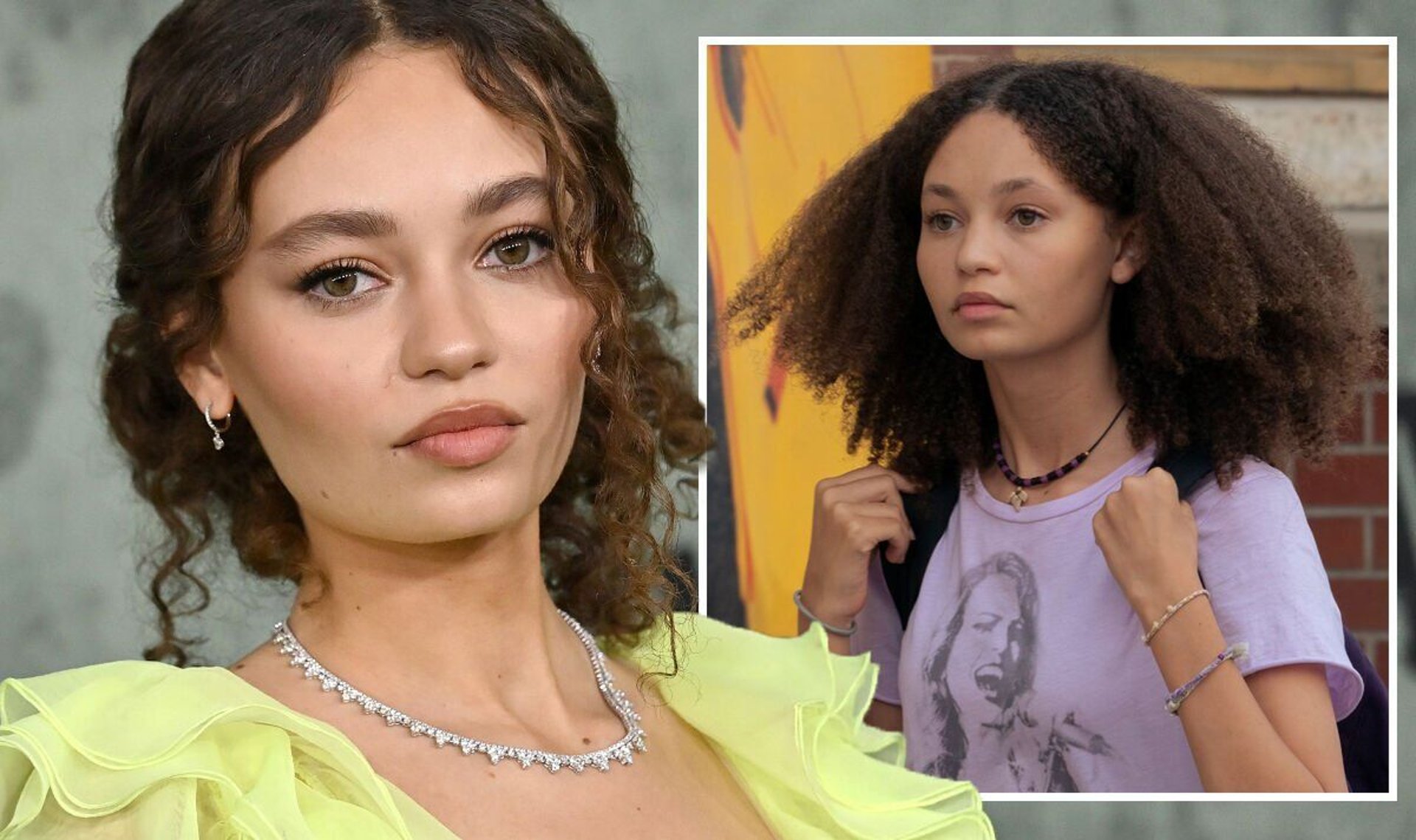“Your home for fearless film reviews, the latest entertainment news, and unfiltered movie rants.”
Nico Parker Responds to Trolls Over “How to Train Your Dragon” Casting: “I Can’t Value Your Opinion on My Hair”
Nico Parker defends her casting as Astrid in How to Train Your Dragon, pushing back against trolls and highlighting performance over appearance.
The Tipsy Critic
6/10/2025

As Universal Pictures prepares to release the highly anticipated live-action remake of How to Train Your Dragon, a different kind of firestorm is already raging online. At the center of the controversy is Nico Parker, the rising British star cast as Astrid, a beloved character long associated with blonde hair, blue eyes, and traditional Viking aesthetics. The backlash over Parker’s casting has been loud, but her response? Louder—and more powerful.
In a recent interview with Mint, Parker addressed the criticism with calm defiance, stating, “If I wouldn’t value your opinion on most things in life, I can’t value your opinion on my hair.” Her delivery was firm, and the message was clear: Representation matters—and performances should matter more than pigmentation.
A Casting Choice That Sparked Debate
When news first broke that Nico Parker had been cast as Astrid, the internet split into two camps. On one side were those applauding the casting as progressive and exciting. On the other, detractors accused Universal of “wokeness” and “blackwashing” a white character. Their argument boiled down to one point: “Astrid doesn’t look like that.”
These objections flooded social platforms, with threads on Reddit and X (formerly Twitter) teeming with questions like: Why not cast someone who looks like the animated Astrid? and Why change what worked?
But Parker, best known for her standout roles in HBO’s The Last of Us and Disney’s Dumbo, doesn’t shy away from difficult conversations. In fact, she meets them head-on. In the same interview, she acknowledged that while some criticism stems from fans’ attachment to the animated series, much of it reflects a deeper discomfort with diversity in legacy franchises.
Dean DeBlois Stands By His Star
Backing Parker is Dean DeBlois, the original trilogy’s creator and director of the live-action adaptation. In multiple interviews, DeBlois emphasized that this reimagining of How to Train Your Dragon is not a direct copy-and-paste of the animated version. “This is a fantasy world, not a historical documentary,” he said. “The tribe in our story consists of descendants from a vast range of people the Vikings encountered—Europe, North Africa, Asia, everywhere.”
For DeBlois, it wasn’t about skin tone or hair color—it was about who best embodied the character of Astrid. He revealed that while many actors were considered, Parker brought something special. “She had the grit, warmth, and leadership quality we were looking for,” he said. “Her chemistry with Hiccup was instant.”
Why Astrid’s Reinterpretation Is Timely
In the live-action script, Astrid isn’t just Hiccup’s eventual love interest—she’s a central force in the story. She’s a warrior, a strategist, and a leader-in-the-making. And in that sense, Parker’s casting is symbolic: a modern retelling requires modern representation.
In an industry still reckoning with its past, Parker’s presence is not just a casting decision—it’s a message. It says: talent comes in many forms, and the next generation of fantasy heroes doesn’t have to look like the last.
The role of Astrid has long been defined by stoicism, courage, and loyalty—qualities Parker has exhibited in her performances time and again. Whether it was her emotionally layered portrayal in The Last of Us or her breakout performance in Dumbo, Parker has consistently chosen roles that challenge expectations.
Performance Over Appearance: A Shift in Hollywood
Parker’s comments about not valuing trolls’ opinions on her hair reflect a growing sentiment in the industry: a performer’s worth isn’t based on cosmetic resemblance to an animated figure. In 2023, similar debates surrounded Halle Bailey’s casting as Ariel in The Little Mermaid and *Rachel Zegler’s Snow White. Both cases sparked controversy, yet ultimately proved that audiences value authenticity and emotional truth far more than surface-level similarities.
In Parker’s case, her Astrid is not just visually different—she’s emotionally deeper. According to early footage from behind-the-scenes featurettes, Parker underwent intense stunt training, learned horseback combat choreography, and even did her own wirework. “I wanted to bring a version of Astrid that felt grounded, fierce, and real,” Parker explained.
Troll Culture and the Exhausting Loop of Online Criticism
What’s striking about Parker’s response is her refusal to entertain online negativity. “If I cared about every troll comment, I’d go mad,” she admitted. And she’s not wrong.
Hollywood actors—especially women of color—are repeatedly subjected to performative outrage from anonymous accounts, much of it racially coded. These aren’t genuine critiques—they’re reactions to change. But as Parker notes, “you can’t change what some people are unwilling to see.”
Still, the backlash reflects a wider tension in entertainment. Studios want to evolve. Fans want familiarity. And actors like Parker are caught in the crossfire. But she’s not letting it define her.
What This Means for the Franchise
This casting controversy may seem like another round of internet outrage, but it also raises questions about how franchises evolve. The original How to Train Your Dragon is cherished, yes—but as Universal expands the franchise, it must adapt to a changing world and a broader audience.
By casting someone like Parker, the studio is betting on a new kind of legacy—one not bound by nostalgia, but driven by performance, emotion, and forward-thinking storytelling.
And it might just work.
Final Thoughts: More Than a Hair Color
As the film hits theaters this weekend, all eyes will be on Parker. Not because of her hair. Not because of her skin. But because she is now Astrid. A new Astrid. One that reflects a new generation’s hopes, identities, and screen heroes.
In the end, Nico Parker’s Astrid may not look like the old one. But in every other way that counts—emotionally, narratively, and symbolically—she might just be the boldest version yet.
📲 For more unfiltered takes and industry breakdowns, visit The Tipsy Critic
📩 Stay updated on casting controversies, movie reviews, and more—subscribe to our newsletter today.





As an Amazon Associate, I earn from qualifying purchases.
